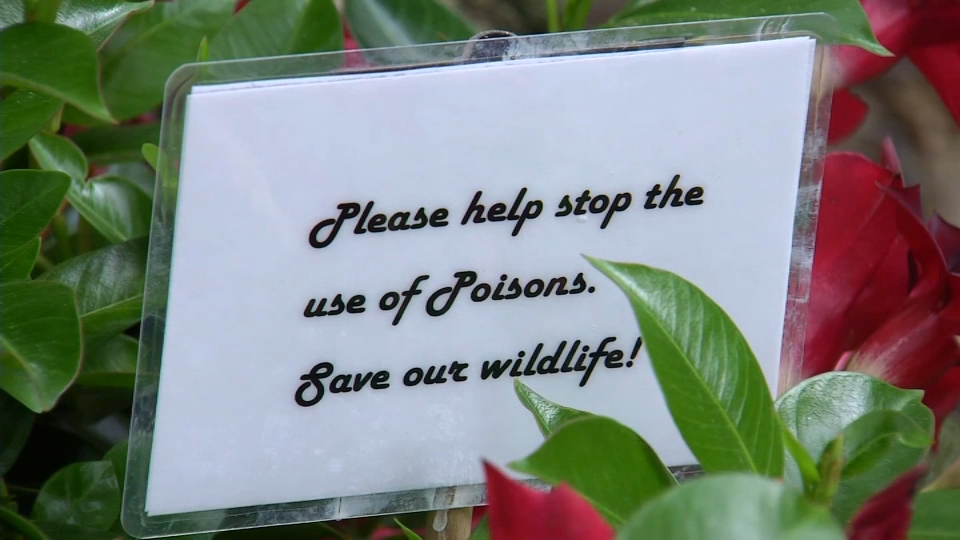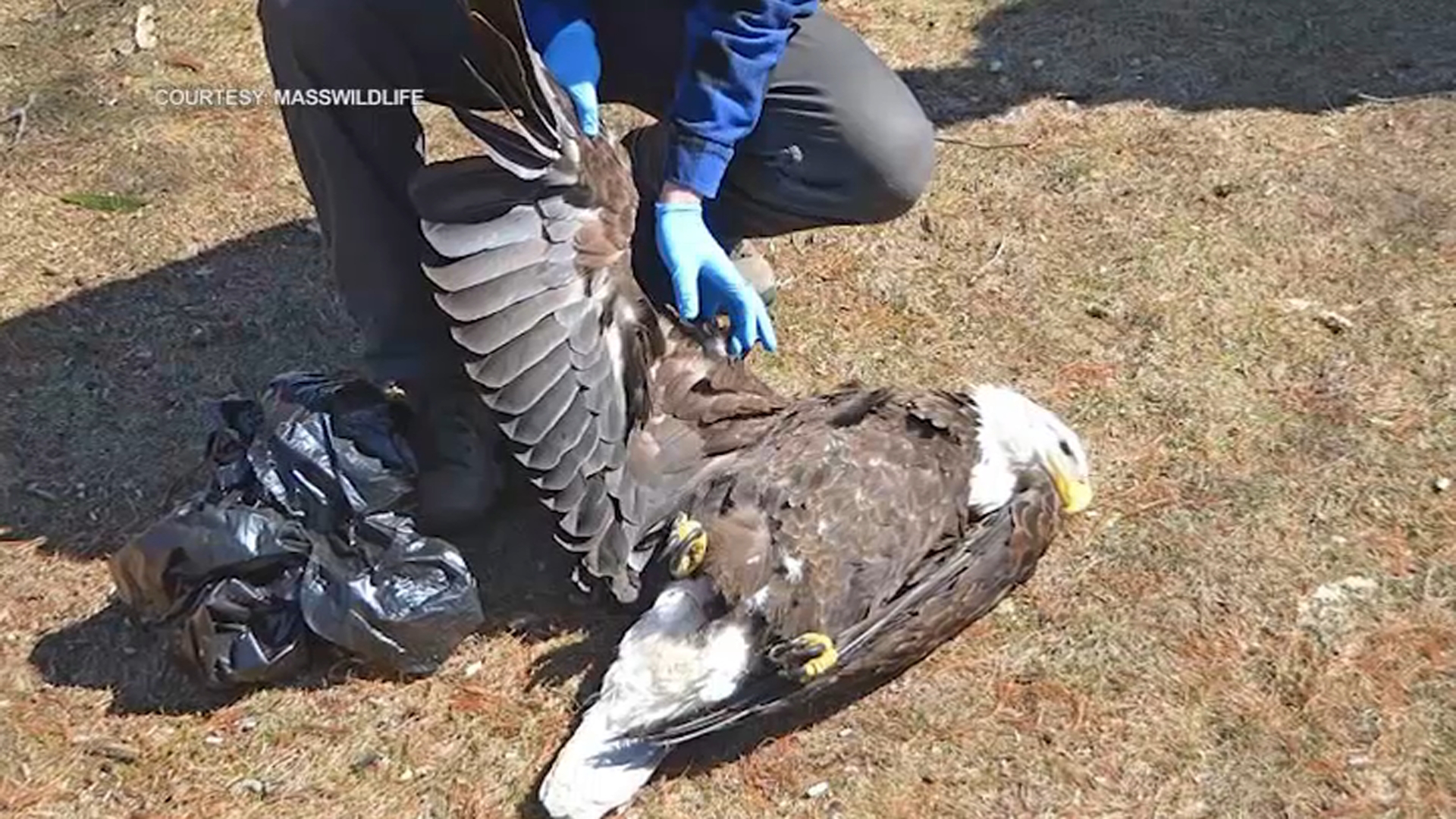Wildlife advocates in Massachusetts are mourning the death of a bald eagle in Arlington and calling for regulation of certain rat poisons.
MK, a female eagle, was rescued from a cemetery in Arlington, but succumbed to her illness. Advocates are calling on local and state officials to do more to prevent more animals from being poisoned by second-generation anticoagulant rodenticides, or SGARs.
"Once you've seen one of these animals suffering, you will never forget it," said Arlington resident Lauren Jones.
Jones has come to appreciate the wildlife found in the parks and ponds around Arlington.
Get Boston local news, weather forecasts, lifestyle and entertainment stories to your inbox. Sign up for NBC Boston’s newsletters.
"They're just majestic," she said of the birds of prey often seen from her balcony.
But more and more often, Jones learns about their unnatural deaths.
"It doesn't seem right," she said.
Jones and other wildlife enthusiasts have been sounding the alarm about SGARs, which are commercial-grade poisons that are used to control rat populations, but also make their way into the food chain.
New England Wildlife Centers CEO Zak Mertz tried saving MK after she was rescued Monday, but she died the next day. She is believed to have eaten a number of poisoned animals.
"She was really lethargic; she was so weak, she couldn't even stand. And honestly, she couldn't even pick her head up," said Mertz. "Week-in and week-out, we're treating hawks and owls, and sometimes eagles and foxes."
Mertz explained that predators typically eat rodents that are sick after eating an SGAR bait. The poison causes those rodents to move slowly, becoming easy targets. Predators then swoop down to eat sick rodents, getting dosed with the same poison.
The poisoning of the wildlife prompted the Town of Arlington to enact its own policy to keep public resources from using SGARs, but Town Manager Sandy Pooler admits they can only do so much.
"State law generally covers the control of things like pesticides, and so for a town to be able to take some action over and above what the state does, they need permission from the legislature to do it," he said.
Pooler pointed to House Bill 230, which aims to give Arlington permission to extend their ban to private companies using SGARs.
"We can't respond to that until we know where it is," said Massachusetts State Rep. James Hawkins.
Hawkins reintroduced legislation that would require pest control companies to keep tabs on how much and how often SGARs are being used on an electronic database.
"People say, 'Well, why didn't you do a ban?' Well, we don't have enough information to do a ban, and if we did, it would take five, six, seven, eight, or 10 years to do something, and we wanted to do something this year," he said.
Collecting that information, said Mertz, can do a whole lot to get to a ban of the poison.
"By having good data available to the people who make decisions and do the research, we see that as a really good first step in understanding the whole problem, and then from there, we can work to take more aggressive measures," said Mertz.
More on the effects of rat poisons on wildlife
"I get it, like, I don't want rats in my home, right? So how do you keep the rats out in an ethical way that doesn't completely disrupt the ecosystem?" asked Jones.
MassWildlife recommends removing sources of food that attract rodents. If you have a rodent issue, begin by using snap traps. And if that doesn't work, the agency says use poisons as a last resort -- preferably those without SGARs -- or choose a licensed, integrated pest management company that uses multiple approaches instead of relying solely on poisons. You can request the company to avoid using SGAR products like brodifacoum, bromadiolone, difenacoum, or difethialone.



